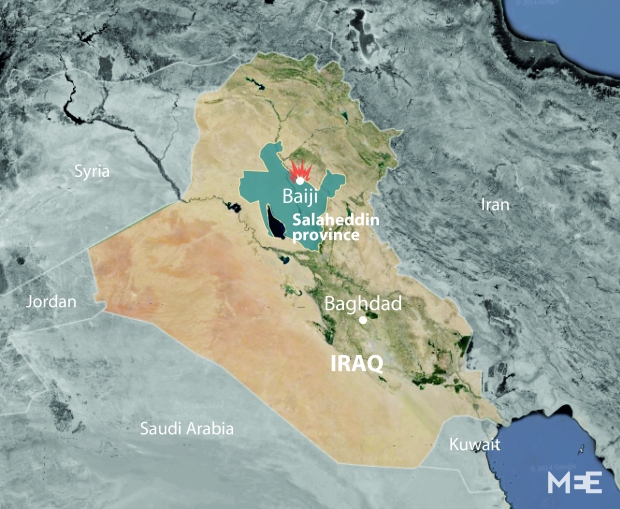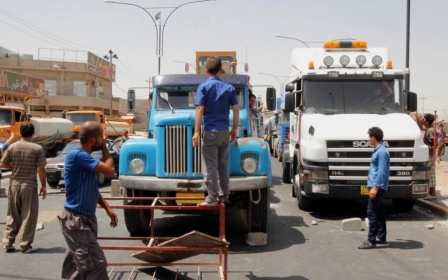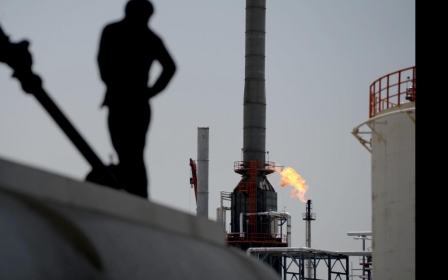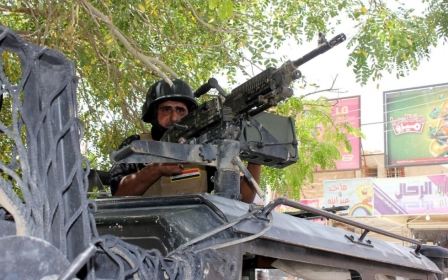Air strikes kill dozens in Baiji, as army denies militant control of refinery
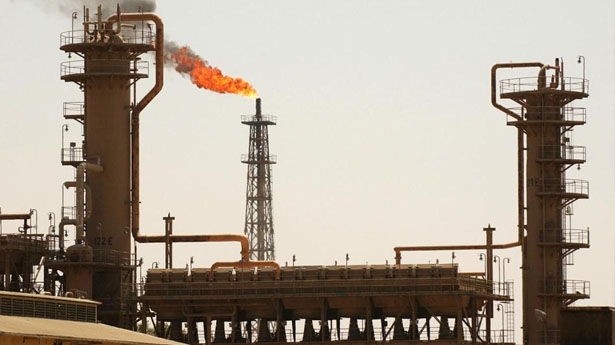
Iraqi air strikes in multiple areas of the strategic oil refinery town of Baiji, north of Baghdad, killed at least 32 people on Tuesday, according to officials and witnesses quoted by AFP agency.
The air raids, which began early on Tuesday, also wounded at least 17 people, they said.
While officials said the dead and wounded included civilians, it was unclear whether the strike hit the militants who were the target of the attack.
However, al-Iraqiya state television said that 19 "terrorists" were killed in the Baiji raids.
There were reports from ISIL-linked websites on Tuesday morning announcing that the city had been captured by militants late on Monday.
However, officials denied this, saying that security forces had been able to repel the attack.
Iraqi news site Iraq Press reported on Tuesday morning that forces protecting the refinery had withdrawn after negotiations with the armed groups who have been surrounding the site for several days.
According to the site, “the negotiations between the two sides, supervised by tribal leaders in Baiji, led to the forces protecting the complex surrendering their weapons and relocating towards Kurdistan.”
News outlet al-Sumaria reports that Qassem Ata, the official spokesperson for the armed forces, denied reports that militants had seized control of the strategically-important complex.
The refinery, which usually fills some 50 percent of Iraq's demand for refined petroleum products, has been the scene of heavy fighting since militants launched a major offensive on 9 June, sending jitters through world oil markets.
World oil prices fell on Monday, reversing earlier gains as supply fears faded over the fast-moving crisis in key crude producer Iraq, according to analysts.
Middle East Eye propose une couverture et une analyse indépendantes et incomparables du Moyen-Orient, de l’Afrique du Nord et d’autres régions du monde. Pour en savoir plus sur la reprise de ce contenu et les frais qui s’appliquent, veuillez remplir ce formulaire [en anglais]. Pour en savoir plus sur MEE, cliquez ici [en anglais].


